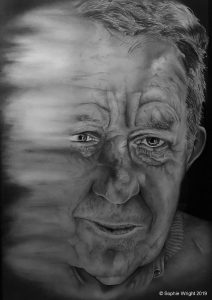BSAR CALLOUT: Missing person with Dementia
Who is available?

In the UK 1 in 3 people will develop Dementia.
When we receive a call out for a missing person we can never know what expect.
In most cases all we know initially is that the police have deemed the person vulnerable and high risk and require our search and rescue skills to help locate them. When we arrive at a search the information available regarding their age, illness and circumstance surrounding their disappearance is a vital tool to help us plan our search and act accordingly.
Dementia is one of the five groups of missing people that we search for. When we search for someone with Dementia we have a wealth of knowledge including statistics and past searches to utilise, however no two persons with Dementia are the same.
Dementia is a cruel disease that affects the brain, usually in elderly patients, leading to memory loss, change in mood and judgement, lack of understanding, movement and general difficulties in life.
From a Search and Rescue point of view, looking for someone with Dementia can prove to be very challenging due to their thought process, how they respond to obstacles and their confused state of mind. Those with Dementia experience tunnel vision, often moving straight ahead until there is a physical barrier or they are unable to carry on. If they do turn they are more likely to follow their dominant side e.g turning right if they are right handed. Many are unaware they are lost and won’t realise they are in danger. This puts them at a higher risk, as being more senior in years, they are more susceptible to slips/trips, hypothermia and infection so its very important for the team to identify these factors when out searching. Statistics like these are vital to help us search effectively. Our motivation and drive to find a missing person comes from the knowledge that there is a loved one waiting for a father, mother, grandparent or partner to return home safely and we will do everything we can to ensure a happy conclusion.
Why do people with Dementia go missing?
Six in ten patients with Dementia will wander. It can happen at any stage of the disease and there are many reasons including memory loss, confusion, stress, boredom or following past routines. Certain strategies can prevent wandering; providing supervision, identifying likely times of day that wandering might occur, carrying out daily activities and distractions. Reassurance can help the person when they are feeling confused and disoriented. If someone does go missing ask friends/family and neighbours to call if they see the person and call 999.
Why is Dementia Action Week so important?
This week encourages people to start to understand about the effects of Dementia both for those who directly suffer and those around them such close family members and how it impacts all of their lives. This week also asks people to start to a conversation with someone who has Dementia and The Alzheimer’s Society Website has got tips and advice on how to get the conversation started.
Visit the Alzheimer’s Society Website or call the National Dementia Helpline on 0300 222 1122 for more advice and information.
Bucks Search and Rescue telephone number: 0300 321 3216
